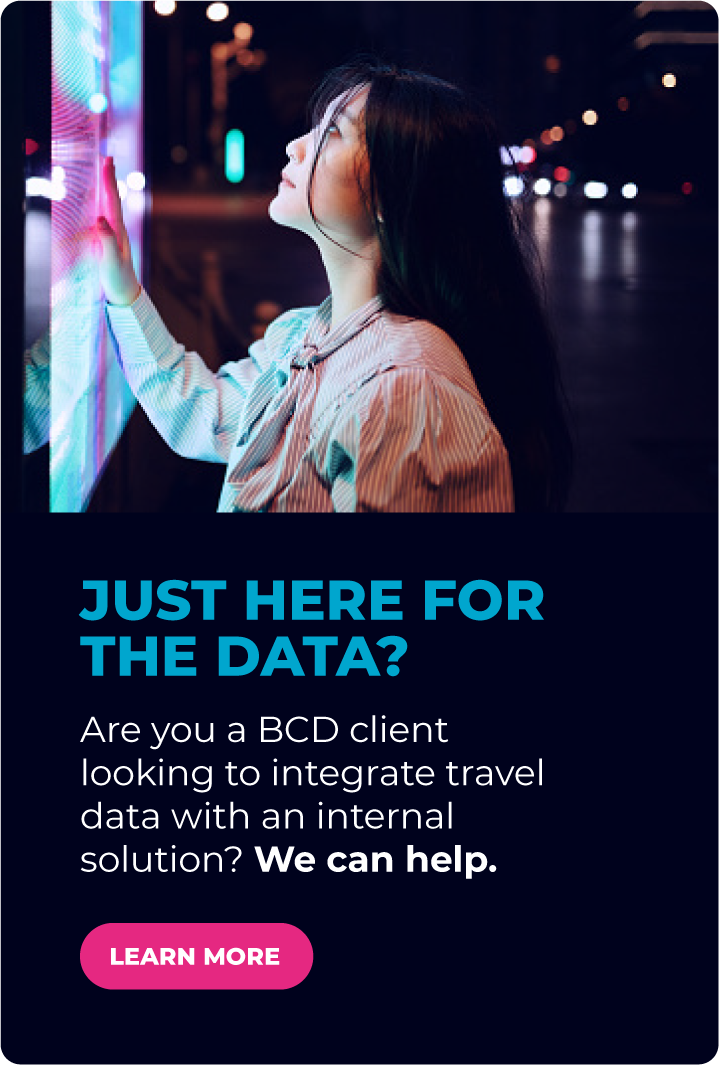
By BCD marketplace partner Mobilexpense
Due to the potential impact of misconduct on the general population, healthcare organizations, especially ones that operate on an international scale, are subject to strict compliance rules and regulations.
An increasing number of countries are adopting Sunshine Laws and similar regulations, which may change yearly. Manually monitoring expenses and the additional data required by transparency laws is a time-consuming and error-prone process. Particularly difficult to manually monitor are travel and expense costs, which require effort around attendee tracking and regulatory reporting.
This article presents an overview of 10 best practices organizations in the healthcare and life sciences sector can implement to achieve compliance and streamline their expense operations.
1. Cloud-Based Expense Tracking Systems
Cloud-based software is a standard go-to solution for many aspects of running a healthcare organization, including expense management. Such tools are accessible to staff at any time and from anywhere, allowing for easy collaboration in real time, which is especially important in remote work setups.
When using a cloud-based expense solution, a business needs to make sure that it provides secure and accessible data storage in line with local data protection regulations. Online HCP directories such as MediSpend, Tucania, MedPro, and IQVIA meet this demand, allowing for faster data input and fewer mistakes made along the way.
2. Clear Expense Policies
Healthcare and life sciences organizations can create expense policies to ensure compliance with the most complex reporting standards such as those outlined in Sunshine Laws. For instance, the US regulation provides an exception for expenses that don’t exceed $10 – these don’t need to be reported until the aggregate annual total per beneficiary hits $100.
Such incidents are difficult to follow manually, which is why setting a policy limit or alert using expense management software is a smart move. This type of software helps organizations establish and enforce spend restrictions per attendee or per expense, as well as adhere to other specific regulations. .
3. Pre-Approval Processes
Pre-approval is a step that ensures the expense has been authorized before the employee incurs it. It means that a manager has already confirmed that the expense is necessary in accordance with the expense policy and budgetary constraints.
Pre-approval workflows can help adhere to Sunshine Laws since they don’t leave room for speculation: the budget is updated in real-time, and everyone has access to the latest update on total expenses at any time. With contemporary tools for managing expenses, each phase of the process becomes immediate, preventing potential conflicts of interest and ensuring compliant spending.
4. Data Analytics
Making expense management data-driven is a priority for modern organizations looking to optimize their operations while staying in compliance with regulations. Data analytics solutions allow businesses to identify trends, manage research costs, and optimize their spending patterns.
Data analytics also helps companies align with the Sunshine Laws’ transparency requirements since such solutions help spot spending expense anomalies and potential fraud – before they become a problem.
5. Encourage Digital Receipts and Documentation
Industries with stringent compliance needs, such as healthcare and life sciences, can no longer rely on paper-based receipts and documentation. Considering that paper receipts may degrade, tear, or become lost, numerous businesses use software that facilitates image uploads, expense monitoring, and submission. Such digital processes simplify audit trails and help businesses maintain accurate records.
When all documentation is stored in a centralized database, everyone from the employee and the accounting associate to the approver and the auditors can edit as necessary, ask questions, or forward reports for reimbursement while meeting the digital documentation and regulatory reporting requirements outlined in Sunshine Laws.
6. Expense Reconciliation
Manual approaches to expense management require copious amounts of paper and spreadsheets. Industries with complex financial transactions need better approaches, and many healthcare providers are leveraging automation in reconciliation processes.
A digital expense management system simplifies the process of expense reporting for employees, administrators, and accounting departments. This type of automation enhances accuracy and ensures compliance with financial regulations.
7. Negotiate Vendor Agreements
Healthcare and life sciences companies should regularly review their vendor agreements and negotiate contracts for enhanced cost control and the ability to comply with changing regulations. For instance, Sunshine Laws include requirements for reporting relationships with vendors, increasing the need for alignment across all vendor agreements.
8. Educate Employees
Organizations should strive to educate employees on how to identify, establish, and monitor best practices across all teams. Educating employees can mitigate compliance risks and ethical issues.
Employee training around areas such as correct information input or reporting requirements is key. Since reimbursable employee expenses are a significant line item on the balance sheets of the majority of businesses, this is the ideal time to foster a cost-conscious culture.
9. Monitor and Audit
Another important point for expense management in healthcare and life sciences organizations is establishing a reporting system that facilitates the submission of receipts and expense reports by employees. Good reporting capabilities enable finance teams to identify trends that enable further optimization.
Through routine audits, accounting personnel can monitor spending over time, identify potential issues such as overspending or fraudulent receipts, and make future policy adjustments.
10. Continuous Process Improvement
The healthcare and life sciences industry is constantly evolving, and organizations need to keep a close eye on new trends as they emerge, adapting their operations to match new challenges and leverage new opportunities. Being proactive and continuously improving the expense management process is the key to success.
Conclusion
Expense management has become a complex area in healthcare and life sciences, prompting many businesses to reach for automation solutions that ensure compliance with regulations such as Sunshine Laws and provide additional information for making strategic decisions.
Automated expense reporting software increases compliance and decreases fraud, thereby decreasing costs and increasing productivity. By enforcing correct reporting requirements and increasing transparency into the overall spend, such tools improve Sunshine Laws reporting compliance.
Interested in exploring Expense Management solutions? Click Here »


